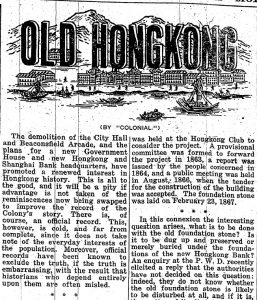
HKHP: In the past decade or so, Hong Kong witnessed a blossoming of social media pages on Hong Kong history (blogs, Facebook pages, Twitter accounts, Patreon pages – you name it). They provide much great content and help make Hong …
25/06/21
HKHP: In the past decade or so, Hong Kong witnessed a blossoming of social media pages on Hong Kong history (blogs, Facebook pages, Twitter accounts, Patreon pages – you name it). They provide much great content and help make Hong …
25/06/21